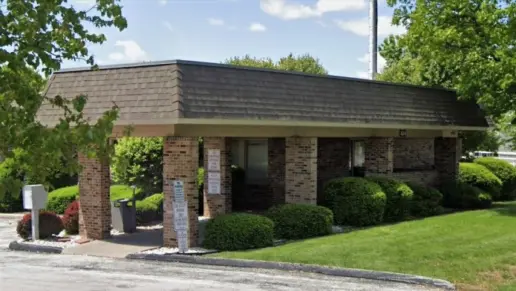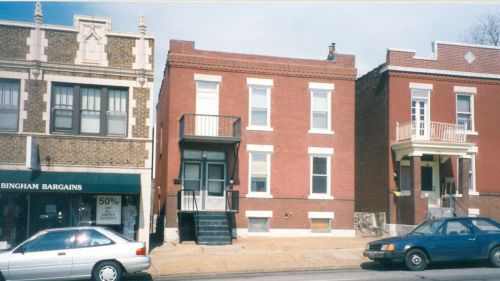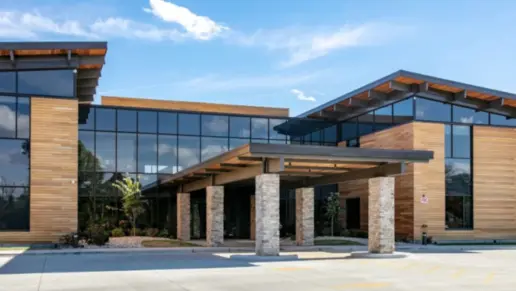I love this place, I have no idea how there can be negative reviews. I am low income with decent insurance and I paid nothing out of pocket here. The entire staff is like family. They are fun and are always there for you. I wanted to die coming in here and now I can't wait t ...
About Synergy Counseling Center
Synergy Counseling Center, located in Springfield, Missouri is a private alcohol and drug rehab that offers treatment for a variety of substance abuse addictions including alcoholism, co-occurring mental health disorders, and opiate addiction. They offer supervised medical treatment to safely manage withdrawal symptoms during detoxification, residential care providing long term support for addiction recovery, as well as flexible outpatient addiction therapy allowing patients to live at home while receiving regular treatment. Additional levels of care offered include intensive outpatient, relapse prevention, and 12-step therapy.
Specialty rehab programs at Synergy Counseling Center include tailored care focusing on women’s specific needs and experiences, gender-specific addiction treatment addressing unique challenges faced by men, and specialized drug rehab for veterans, addressing combat-related trauma and reintegration.
Patients at Synergy Counseling Center will find the residential setting creates an immersive environment promoting full engagement in recovery away from daily triggers and the private rooms that give personal space for reflection and undisturbed rest during treatment. For recreation, patients can express themselves creatively with art activities, use the yoga studio to work on active mindfulness and improve flexibility, or use the meditation room to promote mindfulness during recovery.
Synergy Counseling Center has received accreditations from The Joint Commission and the state of Missouri.
Rehab Score
Gallery
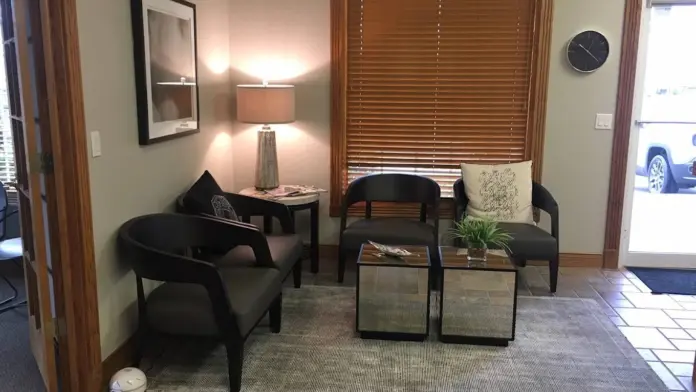
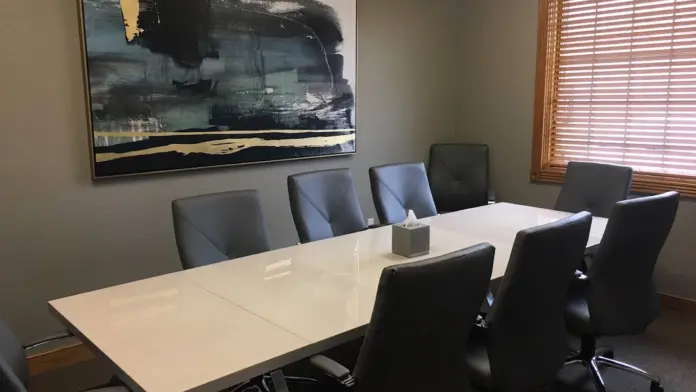
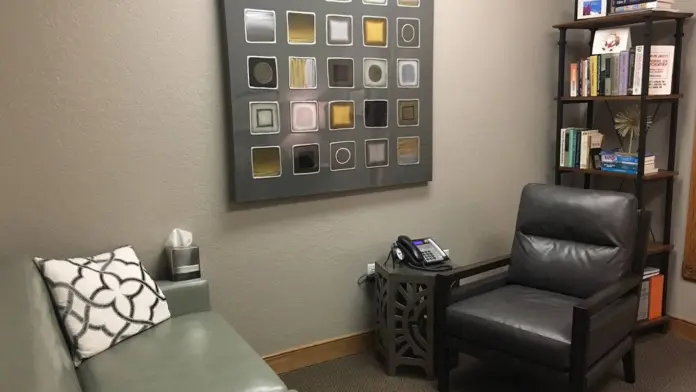
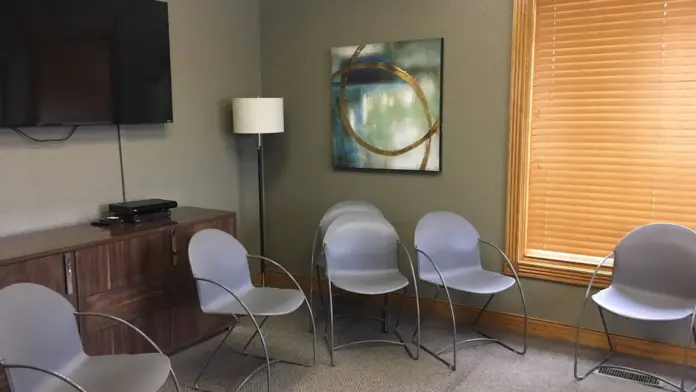
Location
Accepted Insurance
Other Forms of Payment
Private insurance refers to any kind of healthcare coverage that isn't from the state or federal government. This includes individual and family plans offered by an employer or purchased from the Insurance Marketplace. Every plan will have different requirements and out of pocket costs so be sure to get the full details before you start treatment.
Self-pay involves paying for treatment out of your own pocket. You can use savings or credit, get a personal loan, or receive help from family and friends to fund your treatment. If you don't have insurance or your insurance plan doesn't cover a specific program, self-pay can help ensure you still get the care you need.
Financial aid can take many forms. Centers may have grants or scholarships available to clients who meet eligibility requirements. Programs that receive SAMHSA grants may have financial aid available for those who need treatment as well. Grants and scholarships can help you pai for treatment without having to repay.
Sliding scale payments are based on a client's income and family size. The goal is to make treatment affordable to everyone. By taking these factors into account, addiction recovery care providers help ensure that your treatment does not become a financial burden to you or your family, eliminating one barrier to care.
Military members, veterans, and eligible dependents have access to specific insurance programs that help them get the care they need. TRICARE and VA insurance can help you access low cost or no cost addiction and mental health treatment. Programs that accept military insurance often have targeted treatment focused on the unique challenges military members, veterans, and their families face.
Addiction Treatments
Levels of Care
Treatments
The goal of treatment for alcoholism is abstinence. Those with poor social support, poor motivation, or psychiatric disorders tend to relapse within a few years of treatment. For these people, success is measured by longer periods of abstinence, reduced use of alcohol, better health, and improved social functioning. Recovery and Maintenance are usually based on 12 step programs and AA meetings.
Drug rehab in Missouri usually involves several phases: detox, rehab, and aftercare. The rehab phase may include a combination of inpatient and outpatient treatments, as the individual moves through a continuum of care on their recovery journey.
This class addresses how addiction and mental illness interact. Clients will gain knowledge about co-occurring disorders and begin to understand how mental illness can contribute to addiction or how addiction can contribute to mental illness. Clients will also learn how drugs and alcohol change brain chemistry and what to expect during their time in recovery. Clients can expect to learn about common co-occurring disorders including eating disorders and diet pill addiction, depression, anxiety, bipolar disorder, and post-traumatic stress disorder.
A combined mental health and substance abuse rehab has the staff and resources available to handle individuals with both mental health and substance abuse issues. It can be challenging to determine where a specific symptom stems from (a mental health issue or an issue related to substance abuse), so mental health and substance abuse professionals are helpful in detangling symptoms and keeping treatment on track.
Opioid rehabs specialize in supporting those recovering from opioid addiction. They treat those suffering from addiction to illegal opioids like heroin, as well as prescription drugs like oxycodone. These centers typically combine both physical as well as mental and emotional support to help stop addiction. Physical support often includes medical detox and subsequent medical support (including medication), and mental support includes in-depth therapy to address the underlying causes of addiction.
Programs




Clinical Services
Cognitive Behavioral Therapy (CBT) is a therapy modality that focuses on the relationship between one's thoughts, feelings, and behaviors. It is used to establish and allow for healthy responses to thoughts and feelings (instead of unhealthy responses, like using drugs or alcohol). CBT has been proven effective for recovering addicts of all kinds, and is used to strengthen a patient's own self-awareness and ability to self-regulate. CBT allows individuals to monitor their own emotional state, become more adept at communicating with others, and manage stress without needing to engage in substance abuse.
DBT skills class utilizes a combination of psychoeducation, personal reflection, discussion, open sharing, and feedback to provide clients with opportunities to learn and explore the four key skills of Dialectical Behavior Therapy: Distress Tolerance, Mindfulness, Emotional Regulation, and Interpersonal Effectiveness. These skills can help manage overwhelming emotions by strengthening clients’ ability to handle distress without losing control or acting destructively and to better regulate their emotional responses.
Group therapy is any therapeutic work that happens in a group (not one-on-one). Therapeutic interaction among Therapist and up to 10 women designed to promote healthy client functioning and recovery through personal disclosure and interpersonal interaction within the group.
Goal-oriented therapeutic process guided by individualized treatment plans to resolve problems related to Substance Abuse which interferes with everyday functioning. Strong emphasis on developing motivation for change and gaining the knowledge, skills, and tools needed to live a substance-free life.
Motivational Interviewing (MI) is a clinical approach to helping people with substance abuse issues and other conditions shift behavior in positive ways. It is more goal-oriented than traditional psychotherapy, as MI counselors directly attempt to get clients to consider making behavioral change (rather than wait for them to come to conclusions themselves). Its primary purpose is to resolve ambivalence and help clients become able to make healthy choices freely.
Therapeutic process directed at exploring the interrelationship between substance use and trauma and the impact of the trauma on an individual’s life and recovery. The process is directed at making sense of the traumatic experience and the feelings associated with it, and developing healthy coping skills to begin the healing process.
Couples therapy in Missouri deals with the problems each partner has within themselves and with each other. Sessions may be held jointly and others individually to address these issues and help each partner learn how to manage challenges in healthy ways.
Specialized psychological method that combines elements from several well established theoretical orientations combined with bilateral stimulation to treat emotional difficulties caused by disturbing life experiences and traumatic events. Primary goal is to eliminate distress and change related negative beliefs and behaviors associated with the trauma.
This group is open to family members of active clients in the program at Synergy Counseling Center and is free of charge. The group provides education on addiction and how to set healthy boundaries with loved ones in recovery. The group will provide valuable information on helping families cope with addiction and offers support and open discussion among the group members.
Life skills trainings involve all the skills a person must have in order to function successfully in the world. The Budgeting and Life Skills class addresses current habits and introduces healthy changes in the areas of money management, time management, basic problem solving, self-awareness and personal growth.
Addiction often leads to severe health issues, including malnutrition. While focusing on the consumption of substances, you don't get the vitamins your body needs. During nutrition therapy in Missouri, you'll work with a doctor and nutritionist to address the health concerns caused by poor nutrition and learn how to develop healthier eating habits for recovery.
Therapeutic use of the creative process of art making to explore feelings, foster self-awareness, manage behavior and addictions, increase self esteem, and improve and enhance physical, mental, and emotional well-being. Evidenced based use of music interventions to address the physical, emotional, cognitive, and social needs of an individual. Utilizing music in a therapeutic context to provide an avenue for communication, self-expression, and motivation for change.
Experiential therapy is a form of therapy in which clients are encouraged to surface and work through subconscious issues by engaging in real-time experiences. Experiential therapy departs from traditional talk therapy by involving the body, and having clients engage in activities, movements, and physical and emotional expression. This can involve role-play or using props (which can include other people). Experiential therapy can help people process trauma, memories, and emotion quickly, deeply, and in a lasting fashion, leading to substantial and impactful healing.
Nicotine replacement therapy in Missouri addresses physical dependence on nicotine, while support systems and behavioral therapy address the psychological aspects of addiction. Formats include inhalers, nasal sprays, lozenges, patches, and gum.
Amenities
-
Yoga Studio
-
Residential Setting
-
Private Rooms
Accreditations

The Joint Commission, formerly known as JCAHO, is a nonprofit organization that accredits rehab organizations and programs. Founded in 1951, the Joint Commision's mission is to improve the quality of patient care and demonstrating the quality of patient care.
Joint Commission Accreditation: Yes
Accreditation Number: 587756

State Licenses are permits issued by government agencies that allow rehab organizations to conduct business legally within a certain geographical area. Typically, the kind of program a rehab facility offers, along with its physical location, determines which licenses are required to operate legally.
State License: Missouri
License Number: 2008002505
Contact Information
1717 East Republic Road
Suite D
Springfield, MO 65804








